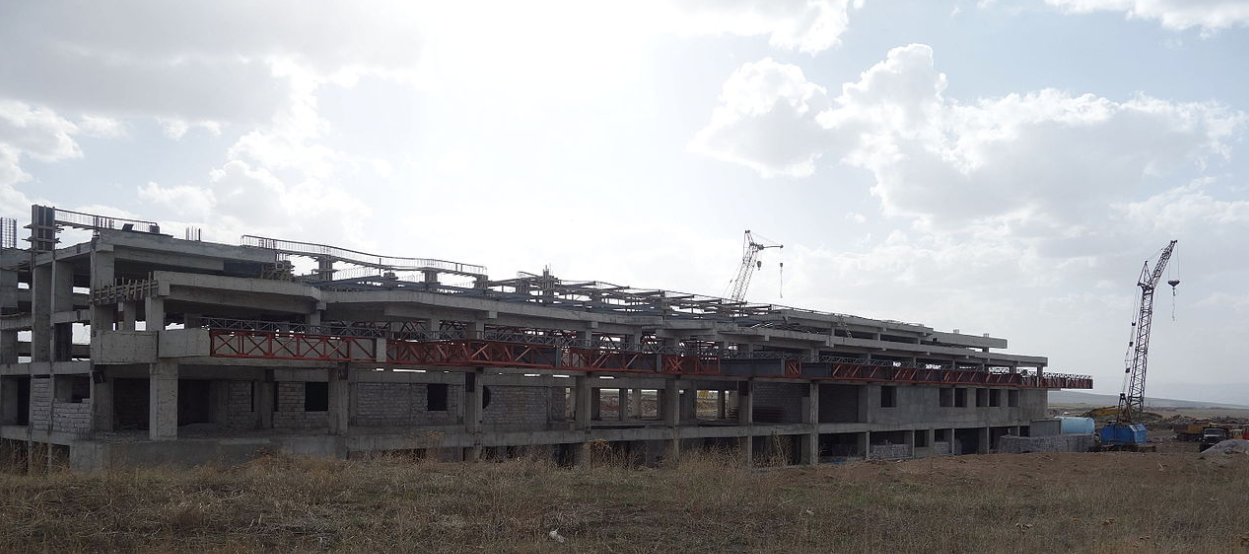AZERBAIJAN currently finds itself courted both by China and Europe. For China it is an important link in overland freight routes vital to the Belt & Road initiative. And for Europe, the giant Shah Deniz-2 gas field will soon be linked by pipeline with the EU, which is concerned about its overreliance on oil & gas from Russia.
Azerbaijan is building strong relations with the EU (and with the UK which will exit the EU next year) on the back of energy security concerns. Foreign minister Mammadyarov participated in a roundtable on energy security on the side-lines of the Munich Security Conference on February 17.
At the same time Azerbaijan is a critical part of one of China’s Belt & Road freight routes connecting through to Europe. On February 6, Silk Road Fund president Wang Yanzhi met in Beijing with delegation headed by Shahin Mustafayev, minister of economy for Azerbaijan.
High on the agenda was the Trans-Caspian Transit Corridor, which forms part of a 6,500-kilometre link between China and Europe, and passes through countries including Azerbaijan, Georgia, Kazakhstan, and Turkey.
A flagship project of the corridor, the Baku-Tbilisi-Kars (BTK) Railway, was inaugurated on October 30 last year. The railway connects Azerbaijan, Georgia, and Turkey. The presidents of Turkey and Azerbaijan and the prime ministers of Georgia, Kazakhstan and Uzbekistan attended a ceremony at the Port of Baku.

Akhalkalaki international train station along Tbilisi-Kars railway under construction
Speaking at the inauguration, Turkey’s President Recep Tayyip Erdogan said shipments from China would be able to reach Europe in 15 days using the BTK route, and the initial capacity of 6.5 million tonnes of freight and one million passengers per year was expected to increase to 17 million tonnes and three million passengers per year in 2034.
In April 2017, Kazakhstan, Azerbaijan and Georgia signed a protocol on a future Trans-Caspian international transport route. The Caspian Sea route crosses the Chinese border at Khorgos in Xinjiang Province, runs through though Kazakhstan, then goes by water across the Caspian Sea to the port of Baku. This project provides an alternative to rail lines through Russia, while also projecting Chinese influence in the Caspian Sea region. It also opens up an efficient sea route to Piraeus Port in Greece via the Black Sea.
Azerbaijan is keen to leverage its geopolitical advantages, as it has suffered from lower oil prices. According to a recent report from Moody's Investors Service, Azerbaijan's (Ba2 stable) GDP growth and fiscal revenue will benefit from higher oil prices, but the legacy effects of the 2014-16 oil shock that significantly and durably hit the government's fiscal strength will continue to weigh on both factors.
In particular, the sharp depreciation in the country's currency and high inflation, as well as tight fiscal and monetary policies, continue to pressure the economy and the government's finances. Moreover, the banking sector remains fragile and credit continues to contract, which also weighs on growth.
The EU said in a December statement that both sides are aiming at closer ties, saying that “the ambitious Southern Gas Corridor project is just one example of this cooperation in the interest of both Azerbaijan and the EU”.
The Trans Anatolian Natural Gas Pipeline Project (TANAP) will run from the Turkish border with Georgia though to the border with Greece. There it will connect with the Trans Adriatic Pipeline (TAP), crossing Greece and then running undersea into Italy. TANAP is owned by the State Oil Company of Azerbaijan Republic (SOCAR) together with Turkish pipeline operator BOTAS, though UK oil giant BP also has a stake.
TANAP will connect with the existing South Caucasus Pipeline (SCP), which feeds gas from the Caspian Sea and runs through Azerbaijan and Georgia.
Photo: Daniel tbs / Wikimedia









